Boiling water tap vs kettle - which is the cheapest to run and best for your money longterm
We asked the experts if swapping a kettle for a boiling water tap is worth the investment to save on energy bills
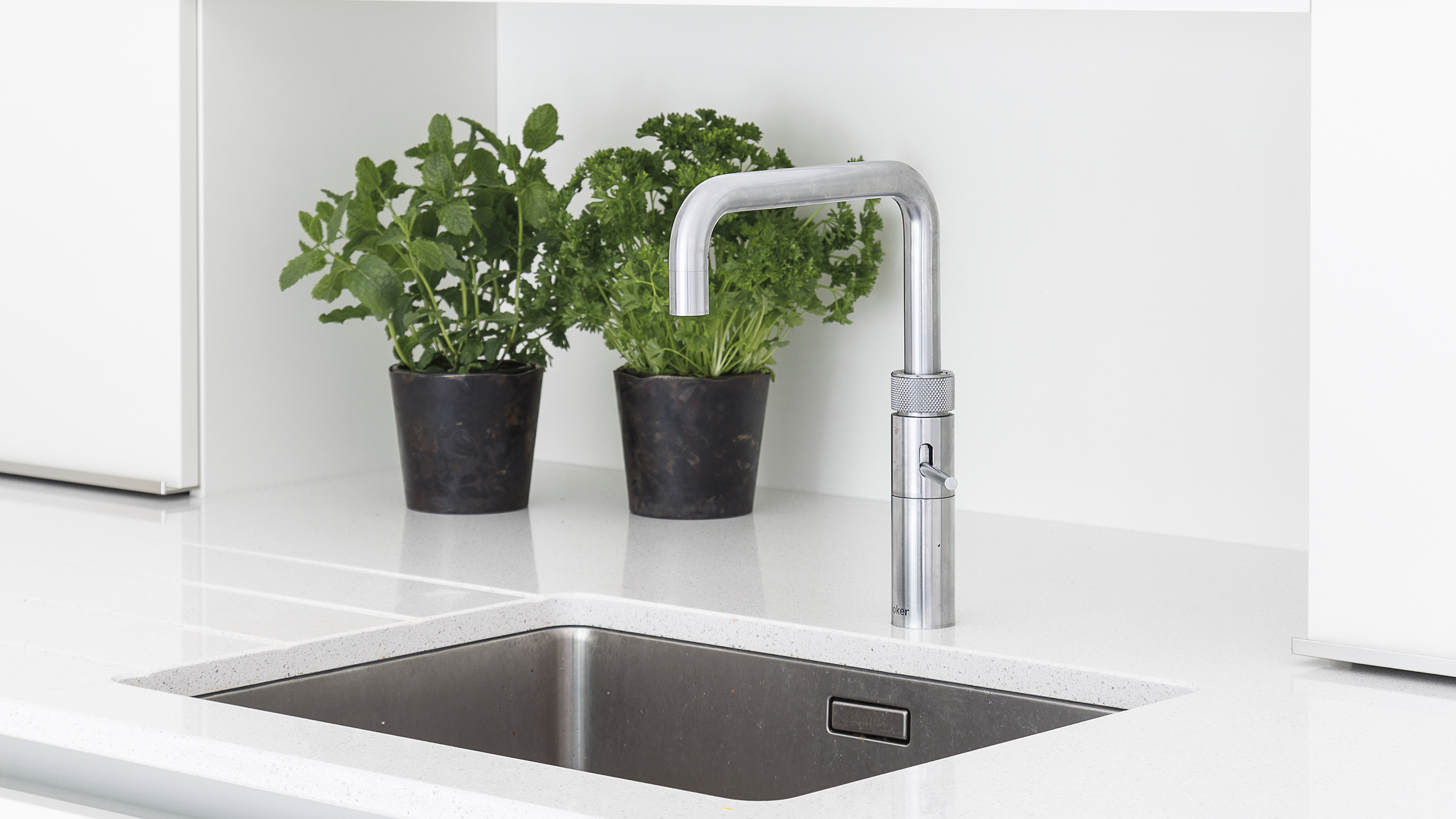

Boiling water taps are high on the wish list of many people's dream kitchens. However, after the shocking realisation of how much it costs to boil a kettle following the energy price cap hike, looking at the energy use of a boiling water tap vs kettle has many considering a boiling water tap as a solution to make crucial savings.
Traditionally if you wanted to make a cup of tea you would boil the water using a kettle, however, the boiling water tap now gives people greater options. We’ve spoken to experts to discover the cost each time you pop the kettle on or use your boiling water tap, to settle the debate of which is cheaper when looking for how to save energy at home.
Boiling water tap vs kettle - What is a boiling water tap?
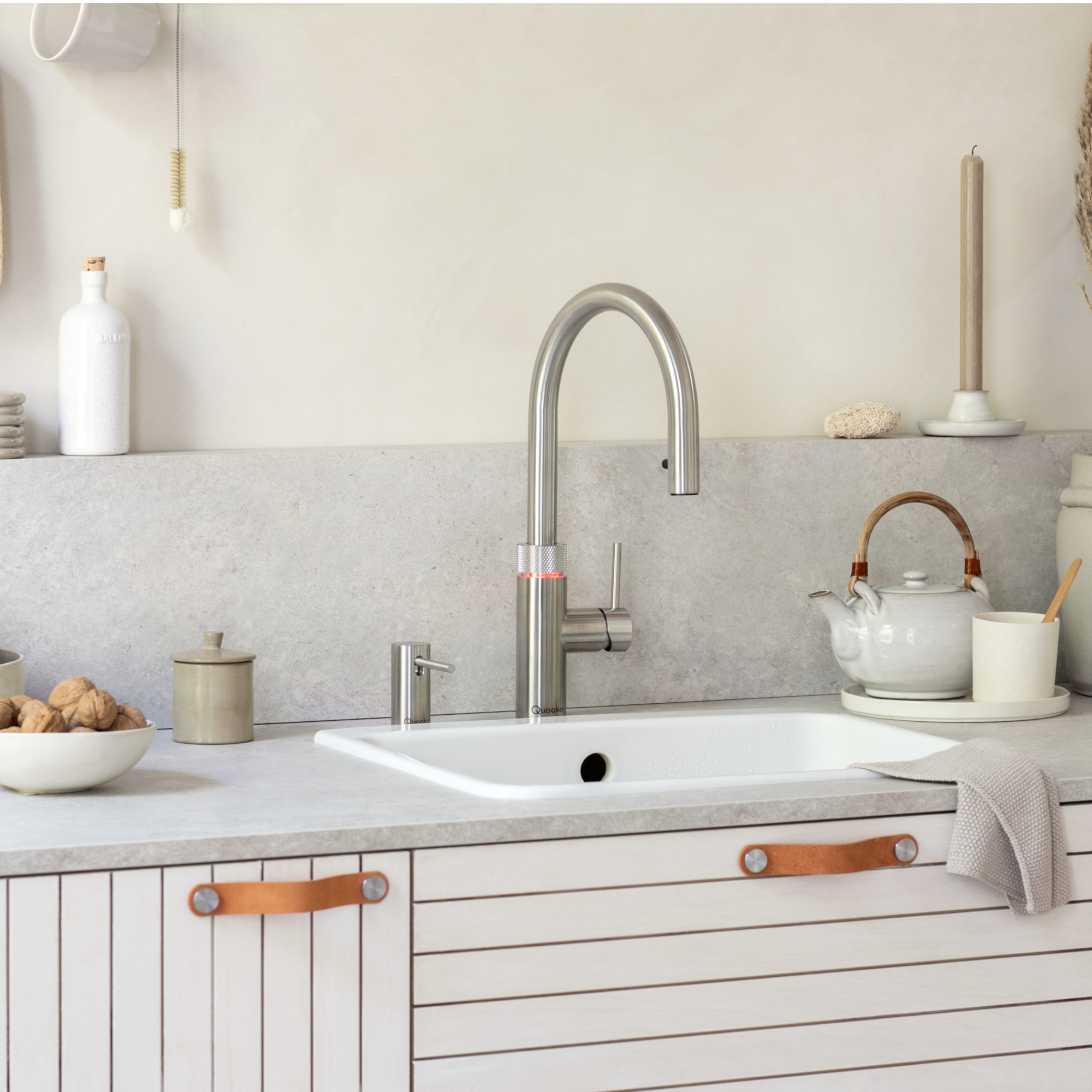
A boiling water tap is just like a regular tap but can deliver boiling water instantly, making it one our editor Heather Young's kitchen design features that make life easier. The tap has a tank underneath the sink which is plugged into the mains and water supply. The water is heated and stored at the correct temperature so each time you turn on the tap you get instant boiling water.
A boiling water tap is super easy to install because it is fitted the same way as a regular tap, just make sure you have space for the tank.
The three types of boiling water taps are, boiling water only, 3 in 1 taps which dispense boiling, hot and cold water and 4 in 1 taps which dispense boiling, hot, cold and filtered water. They can range in price from £399 to £1,693.
Boiling water tap vs kettle - What is a kettle?
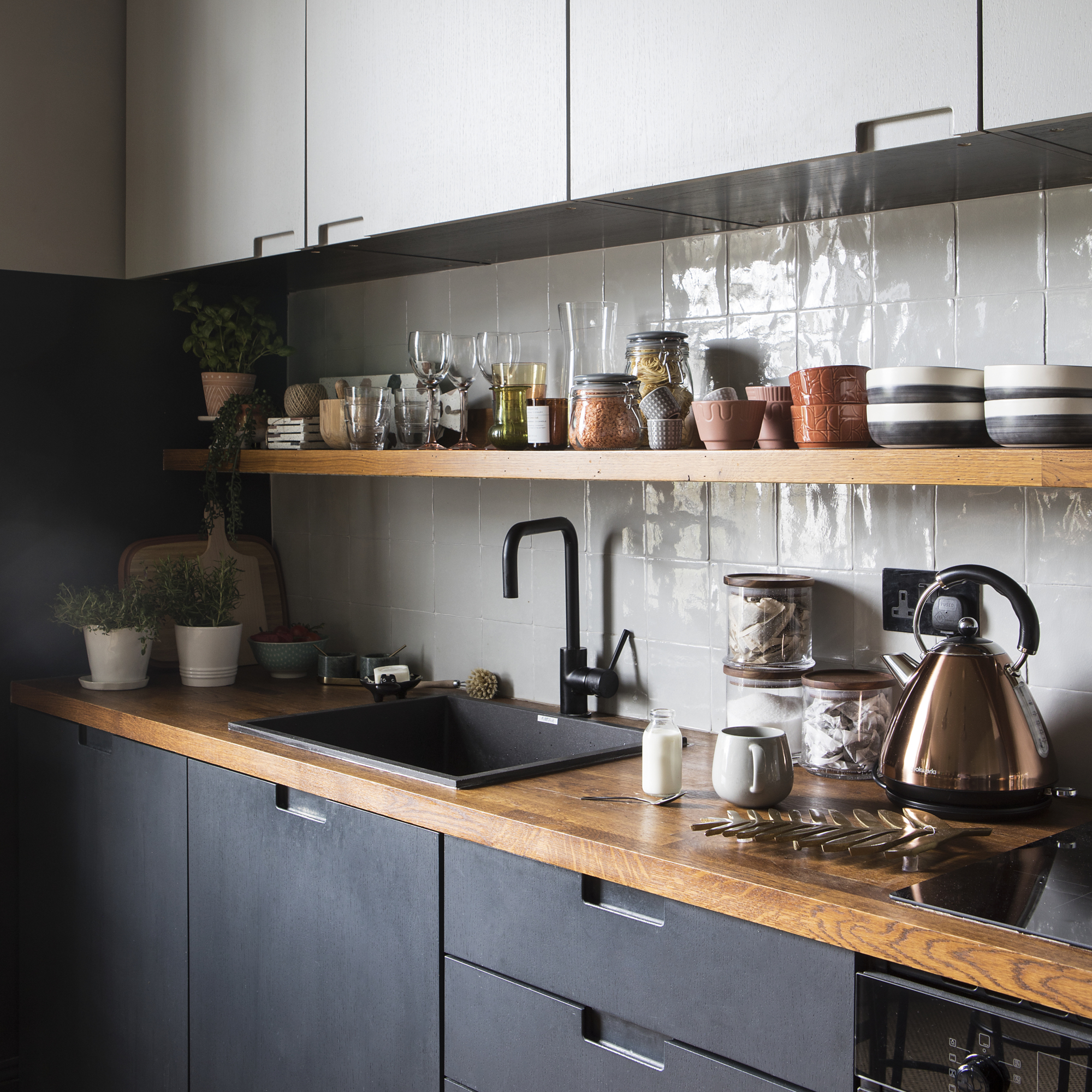
We all think we know what a kettle is right? Well, there may be more options than you would initially realise. When it comes to kettles there are three main types electric, stovetop and gooseneck.
A stovetop is ideal if you just want to boil water for cups of tea, if you want larger amounts of boiled water quickly, an electric kettle would be the better option. A gooseneck is ideal if you’re more of a coffee person because it is designed for a slow pour.
Get the Ideal Home Newsletter
Sign up to our newsletter for style and decor inspiration, house makeovers, project advice and more.
The material of your kettle is also important to consider because this impacts the level of heat retention. The different types of material include stainless steel, ceramic, glass, aluminium, and cast iron. Aluminium is a lighter material so heats up quickly but isn’t as strong as cast iron which heats up water quickly and keeps it warmer for longer.
Our range of best kettles are priced from £39 to £179.10 so there is something for every budget.
How much does it cost to run a kettle?
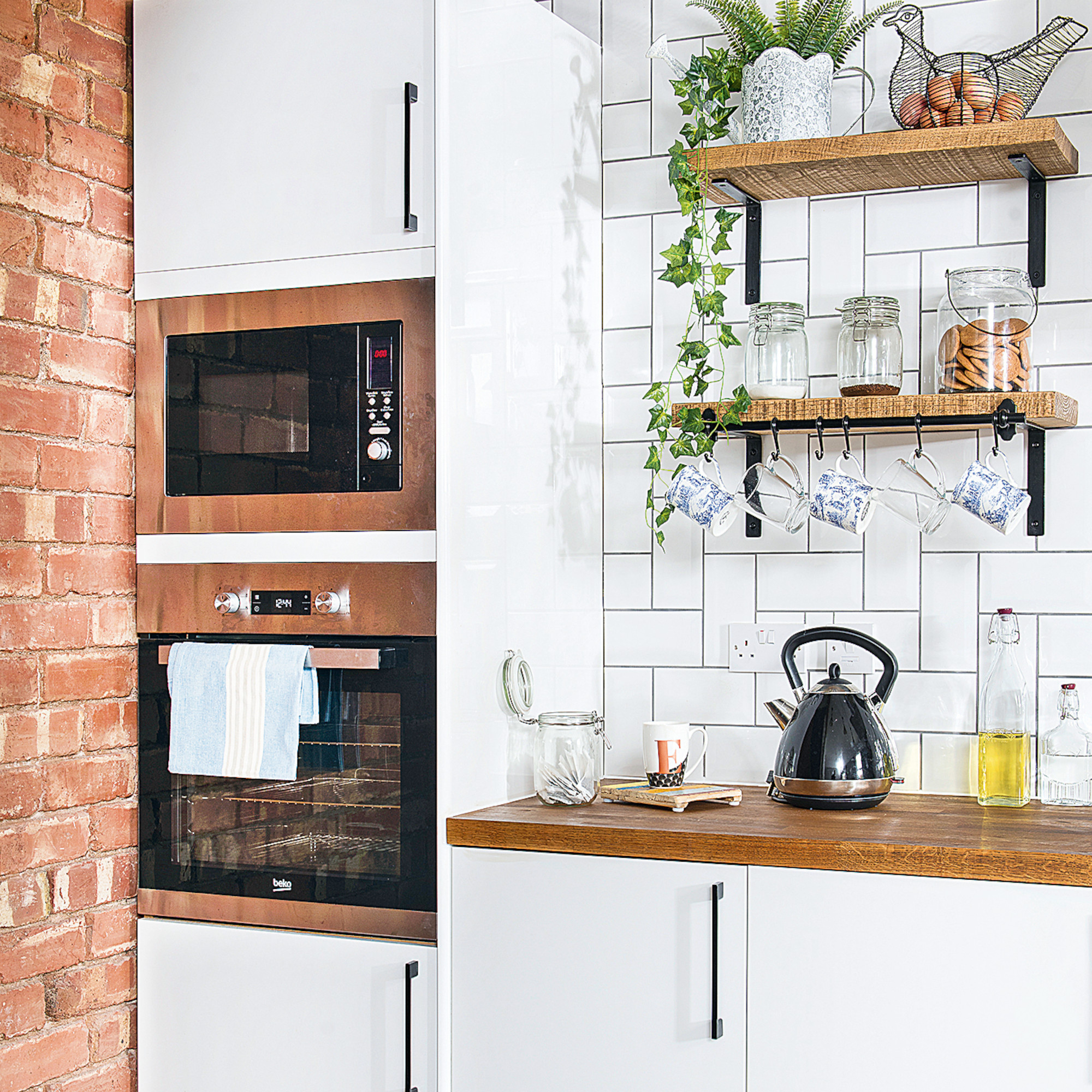
Experts from the Energy Saving Trust say ‘boiling a full kettle (approximately 7 cups) uses around 0.2kWh of energy. This would cost you about 7p at the current Energy Price Guarantee electricity price of 34p/kWh.’
This is echoed by USwitch who say it costs 7p to boil a kettle for five minutes at a time.
If you want to bring down that price, which we know we do, you can use a one-cup kettle which only boils the amount of water required. This will use 20% less energy than a conventional eclectic kettle and save you £13 a year on your electricity bill. Or if you already have a conventional kettle avoid overfilling it which results in energy loss.
For a single cup of boiling water Ben Clarke, a heating expert at Trade Radiators says, ‘The average kettle is 3kW, and takes around 45 seconds to boil one cup, which is around 250-300ml. This means that one cup of water would cost around 1.28p. However, this number will increase the more water you boil, and is completely dependent on how long it takes your kettle to boil.’
So on average, it costs 7p to boil a full kettle, and 1.28p for a single cup.
How much does it cost to run a boiling water tap?
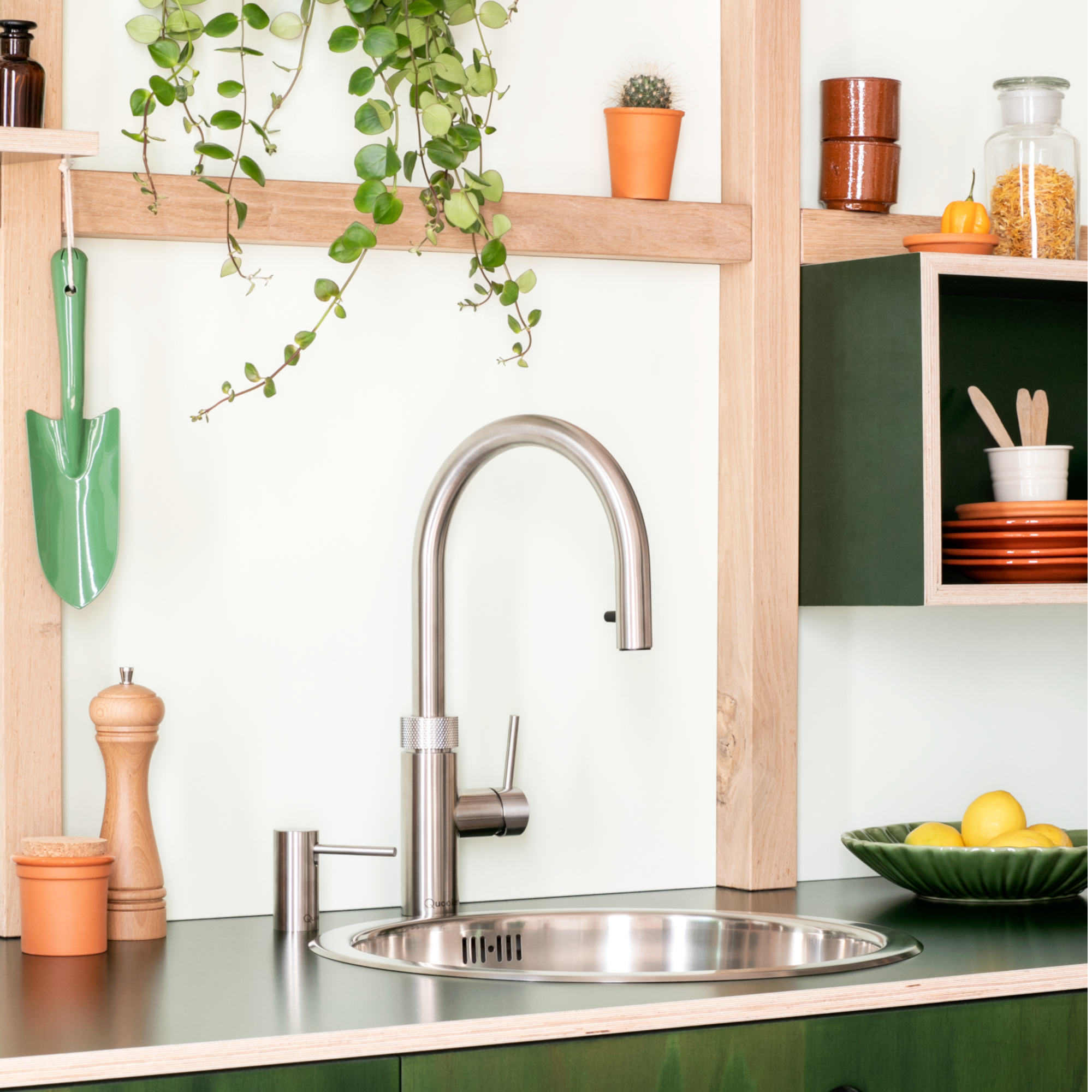
Stephen Johnson, Managing Director UK of Quooker says, ‘The cost of running a boiling water tap is 1p per water litre delivered, approx 3p per day considering the average UK household.’
This makes a cup of around 250-300ml cost on average 0.25p to 0.30p which is cheaper than boiling a cup of water using a kettle. However, a boiling water tap costs considerably more to buy and install than purchasing a kettle.
The upfront cost of a boiling water tap can range from a few hundred pounds to well over a thousand. Quooker offers an installation fee of £99 if the tap and tank are purchased together, but for other taps installation fees can vary from £50 to £200 for a qualified plumber to fit the tap which should take 1-2 hours.
Another cost is the filter, Michael Sammon, managing director at boiling water tap company Wödår recommends replacing your filter for the boiling water tap every six months which will cost an average of £35.
A boiling water tap does benefit from zero water wastage, giving you only the exact amount of water you require instantly, so no waiting around for a kettle to boil.
Which is easier to use?

Both are very easy to use, with a simple flick of a switch being all you need to get your kettle to give you boiling water.
A boiling water tap needs a safety button pushed at all times to give you boiling water, making it safe to have around children. The taps are heavily insulated so the metal won’t get hot to the touch and has a lower water pressure to protect you from getting splashed accidentally by boiling water.
Which is more affordable?
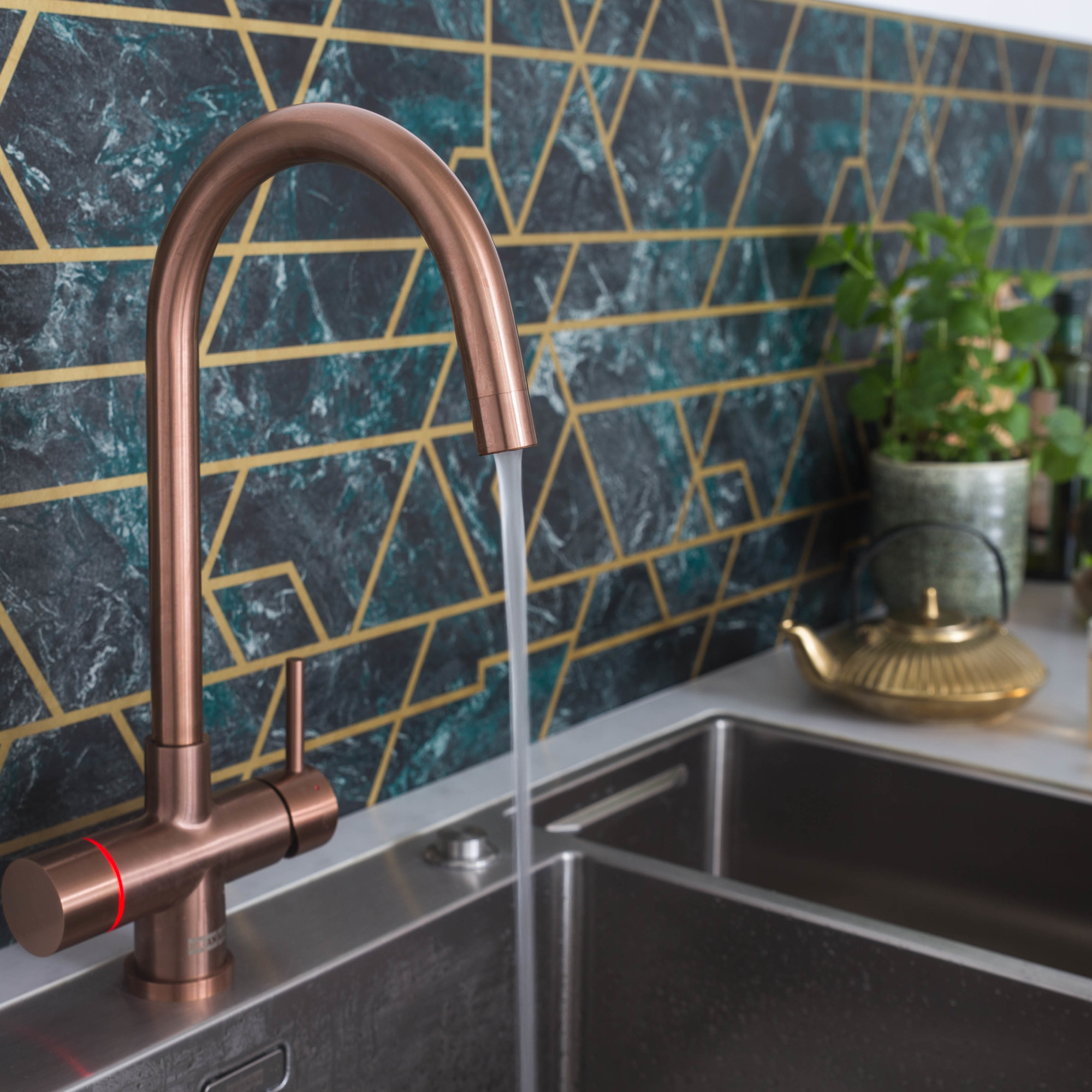
To keep the costs down of a boiling water tap it is recommended to look for those that come with the filter and tank included in the price of the tap to avoid any extra fees.
If you’re not a house that likes a lot of brews and doesn't require a lot of boiling water, the minor savings made from a boiling water tap may not be worth the initial high purchase cost and maintenance costs. However, if you are a busy household with the kettle always on the go then, investing in a boiling water tap could be worth it.
‘Even though it will cost you less in the long run, having a boiling water tap installed can set you back as much as £500-£1000 for the original purchase and installation, whilst purchasing a kettle can cost as little as £15-20. With people looking for ways to cut as many costs as possible due to the cost of living crisis, short-term solutions seem to be the go-to,’ says Nicola Battey, product director at boiler and home, emergency insurance company Hometree.
‘If you’re looking for ways to use your kettle more efficiently, make sure to fill it with just the right amount of water you need, rather than over-filling it.
‘Underfilling your kettle, however, could also lead to the plastic melting, electrical blowouts and even fires. Due to this, we recommend filling your kettle just above the minimum fill line while still pouring in the required amount.’
Ben Clarke from Trade Radiators advises, ‘If you're buying a new house, I recommend looking out for boiling taps in the kitchen. This is probably the cheapest way to have a boiling tap ready to use at home.’
Based on what the experts have said the best choice depends on how much you want to spend initially on the appliance and your unique needs.

Imani Cottrell is Ideal Home’s Content Editor, she graduated with a Masters degree in magazine journalism from Nottingham Trent University in 2018.
She then went on to join the Royal Television Society and worked on their digital team writing about all things TV. In 2022 she joined the Ideal Home team and is getting to express her passion for all things interior design. In her spare time she loves discovering new homeware brands and travelling to new places for design inspiration.
-
 Will a conservatory add value to your home and how can you maximise it?
Will a conservatory add value to your home and how can you maximise it?This is what the pros say
By Amy Reeves
-
 I’ve been looking for a new signature scent for my home and The White Company's new fragrance is the exact summer holiday smell I needed
I’ve been looking for a new signature scent for my home and The White Company's new fragrance is the exact summer holiday smell I neededSantorini smells fresh, summery and sophisticated
By Kezia Reynolds
-
 How to remove algae from garden walls in five steps – and the cleaning product experts rave about for tackling it fast
How to remove algae from garden walls in five steps – and the cleaning product experts rave about for tackling it fastExperts share their top tips for getting garden walls algae-free
By Katie Sims